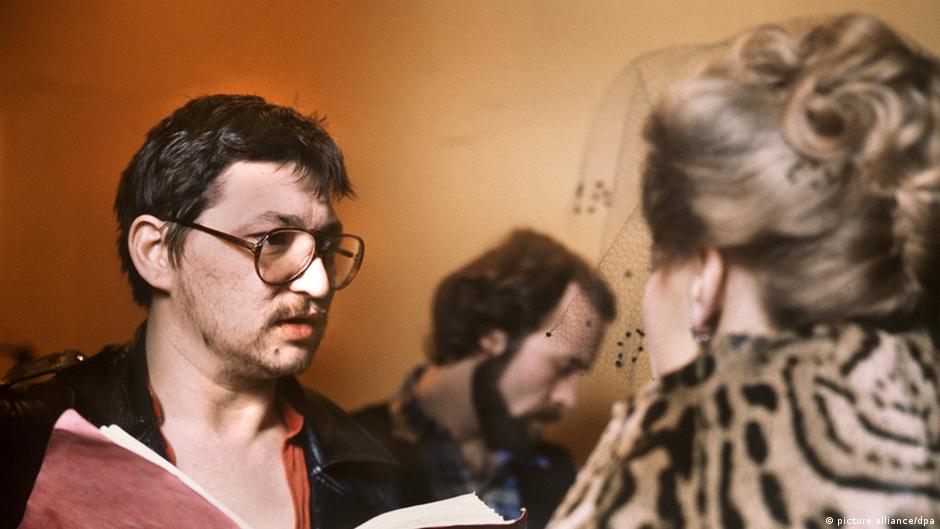
What defined filmmaker Rainer Werner Fassbinder
by Jochen Kürten (eg)The German director, who was born 75 years ago, was extremely prolific despite his destructive lifestyle. A Fassbinder expert tells DW about how his genius was first recognized abroad.
Rainer Werner Fassbinder's significance as a filmmaker is an established fact in Germany, but the country was never too fond of him — especially not of his lifestyle. The director, who died at the age of 37, was extremely prolific during his short life. From 1969 until his death in 1982, he directed over 40 feature films, two TV series, different short films and video productions, and 24 plays.
But work was not his only addiction. His drug and alcohol abuse came at a price, also affecting his popularity in Germany. Local cinephiles were more likely to be fans of the films of Volker Schlöndorff, Werner Herzog and Wim Wenders than Fassbinder's.
A self-taught genius
Still, New German Cinema, the wave of new arthouse directors that revolutionized West German filmmaking in the 1960s, would not be conceivable without Fassbinder.
Born on May 31, 1945 in Bad Wörishofen, Bavaria, Fassbinder never attended a film school, but rather learned to make films on his own. That's perhaps exactly what made him strong and courageous. Fassbinder did whatever he wanted. He didn't allow anyone to meddle in his film projects or his lifestyle, which was significantly shaped by his homosexuality as well. He was always a radical outsider in a bourgeois society.
After starting his career in theater as an actor, scriptwriter and director, he made his first feature film, Love Is Colder Than Death,in 1969. Fassbinder was a multitalented genius; he directed films and plays, wrote screenplays and radio dramas, made documentaries and fiction films of all lengths and was also an actor.

Love Is Colder Than Death
Love, death and coolness: These three elements would characterize Rainer Werner Fassbinder's entire life and work. The young Bavarian director was only 23 when his first feature-length film was released in German theaters. "Love Is Colder Than Death" premiered at the Berlinale, Berlin's international film festival, in 1969.
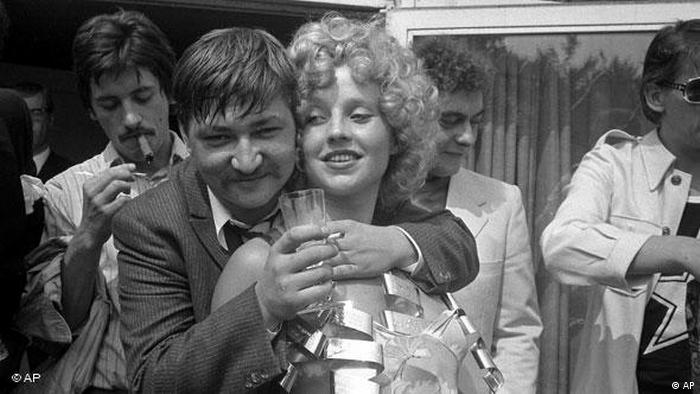
Katzelmacher
His 1969 film "Katzelmacher" (a derogatory Bavarian term for foreign workers) features bored couples whose relations are shaken by the arrival of a Greek immigrant. Many of the actors of the cast would associate with Fassbinder over years. He is pictured here with one of his many muses, the actress Hanna Schygulla, celebrating their five German Film Awards for the movie.
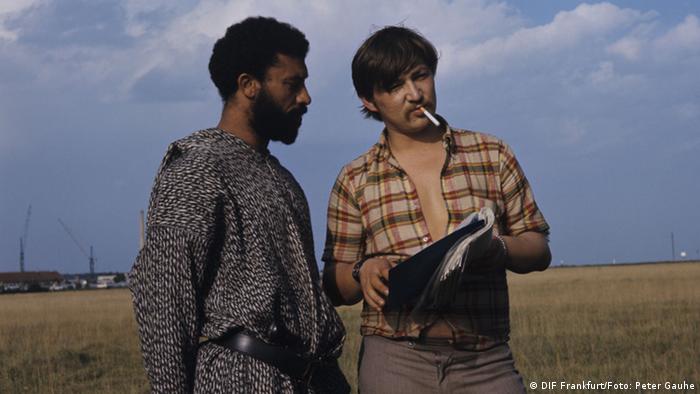
Merchant of Four Seasons
Even with his brilliant career debut, not all of his movies would be successful at the box office. Fassbinder would also work as a theater and television director. The exhibition on his career "Fassbinder - NOW," currently running at the Martin Gropius Bau in Berlin, shows rare footage of him working, like here on the set of "The Merchant of Four Seasons" (1971).
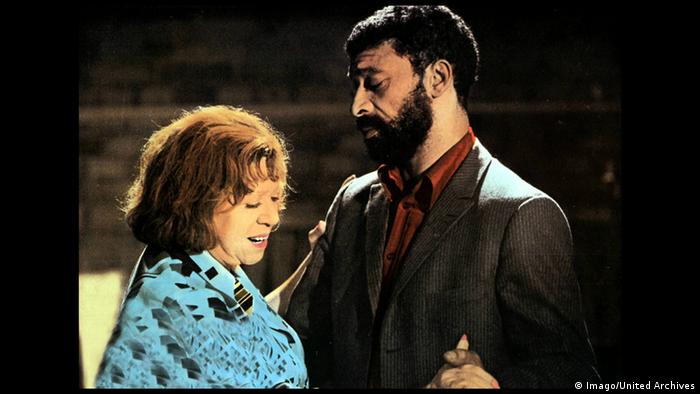
Ali: Fear Eats the Soul
Fassbinder's film "Ali: Fear Eats the Soul" shows the complications which arise from a relationship between an elderly German woman (Brigitte Mira) and a Moroccan (El Hedi ben Salem) who is more than 20 years her junior. The film was shot in just two weeks in 1973. Despite its shoestring budget, it is one of his most influential works and is still highly relevant today.

Effi Briest
Shortly after "Ali: Fear Eats the Soul," Fassbinder surprised his fans with this movie. Breaking with his signature present-day chronicles of ordinary people, he created this period piece based on Theodor Fontane's 1894 novel "Effie Briest." Starring Hanna Schygulla, the film's stunning images are a feast for the eyes.
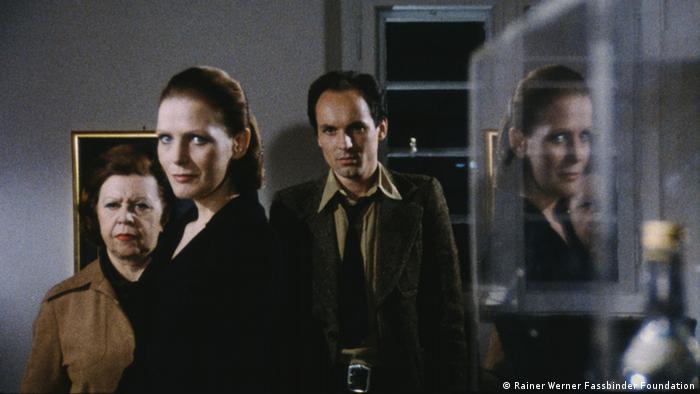
Chinese Roulette
A married couple's infidelities are exposed by their crippled daughter in "Chinese Roulette" (1976). In this "typical" Fassbinder film, emotions collide as the characters meet in a confined space and reveal relations of power and passion. This psychological drama overflows with powerful images, such as the haunting reflections of silhouettes in mirrors and windows.
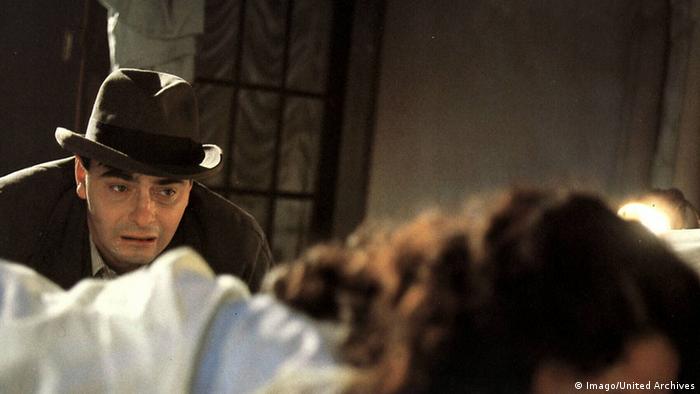
The Stationmaster's Wife
Later on in his career, Fassbinder also tackled topics related to German history. "The Stationmaster's Wife" ("Bolwieser" in German) is based on a novel by Oskar Maria Graf, with a story set in a 1920s Bavarian town. Initially broadcast as a television series, it was also made into a shorter feature film. The director would cleverly adapt his work for different media.

Despair
By the mid 1970s, Fassbinder's international fame gave him access to bigger opportunities. With a budget exceeding the total cost of his first 15 films, "Despair" was one of the three movies he made in English. It starred world-renowned actors such as Dirk Bogarde and Andréa Ferréol. The film premiered at the Cannes Film Festival, but failed commercially.
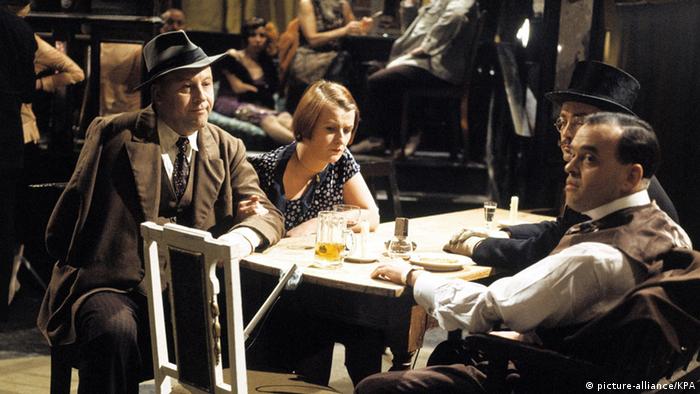
Berlin Alexanderplatz
After a few minor socially engaged films, such as "Germany in Autumn," which dealt with RAF terrorism, Fassbinder realized in 1979 an ambitious dream by filming a TV series of 13 episodes adapted from Alfred Döblin's 1929 novel, "Berlin Alexanderplatz." Decades before the current series boom, Fassbinder was a trendsetter.
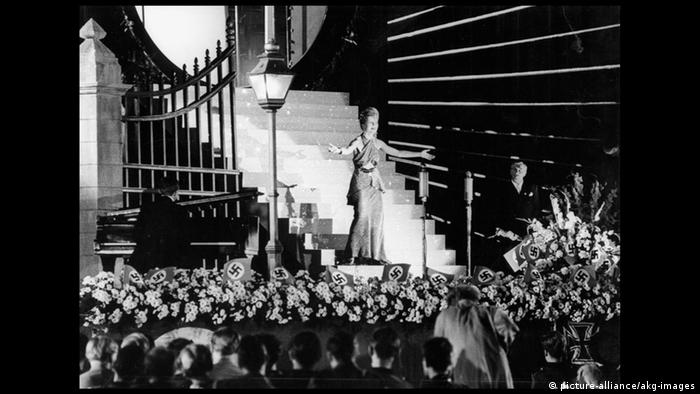
Lili Marleen
While his great success "The Marriage of Maria Braun" (1979) dealt with the post-war economic boom, Fassbinder took on Germany's Nazi period with "Lili Marleen" (1981), shot in English. The director used a popular framework to tackle this serious theme. Great actors portray an unfulfilled love story: Fassbinder borrowed Hollywood's most effective dramatic tricks in this international production.
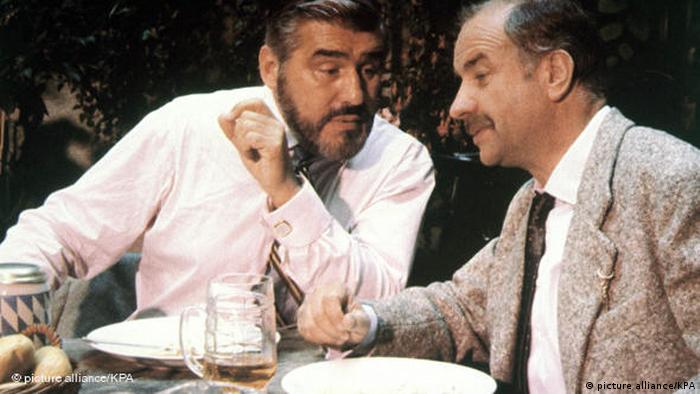
Lola
"Lola" (1981) is set in West Germany's post-war period of economic boom. By then, Fassbinder had access to everything he could wish for, and top German stars would drew the masses to his films. Things were gloomy behind the scenes, though: The workaholic was increasingly affected by drug and alcohol abuse.

Kamikaze
Fassbinder was not only successful as a film director. He would keep working on projects for the theater and television. His controversial and legendary play "Der Müll, die Stadt und der Tod" (Trash, City and Death) was finally presented for the first time in 2009. And Fassbinder was also an actor who'd work for other filmmakers too - here, in "Kamikaze" by Wolf Gremm.

Veronika Voss
Just a few months before his death, Fassbinder would win the Golden Bear at the 1982 Berlinale with his film "Veronika Voss." Shot in black-and-white and influenced by Billy Wilder's "Sunset Boulevard," the film depicts a drug-addicted German actress in the 1950s. Fassbinder's penultimate work conquered the critics and the audience.
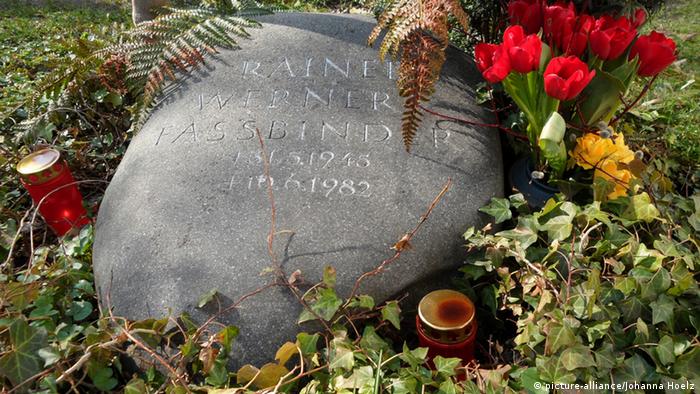
An early death
Fassbinder would not live to see the premiere of his film "Querelle," based on a book by Jean Genet. He died on June 10, 1982 in Munich of a sudden cardiac arrest, presumed to be caused by a cocktail of alcohol, cocaine and barbiturates. In his creative frenzy, Fassbinder directed over 40 films within 13 years. His works are known worldwide.
Author: Jochen Kürten / eg
A deep understanding of the media
Along with his artistic versatility, Fassbinder always aimed to develop something completely different, points out Michael Töteberg, who wrote different books on the filmmaker. "He created in many different media forms, but always with a specific understanding of each medium," the film expert told DW. He would never make a film out of a play or simply turn a TV series into a film, for instance.

If he did make two versions of a project for the big and the small screen, such as The Stationmaster's Wife, they differed enormously, adds the author.
The fact that Fassbinder developed a new perspective for each project is what Töteberg finds exciting about his work, even though that's not what he's best remembered for. Once a filmmaker is ranked among the classics, then "a certain image of this person sticks," the film expert says. Fassbinder is mainly known for his cinematic melodramas about German history, and Töteberg observes that anything that doesn't fit in this framework tends to be left aside, even though the director's work was very extensive and diverse.
Breakthrough in Cannes
The film expert believes Fassbinder's significance was recognized earlier abroad than in Germany and that he was probably better understood there as well.
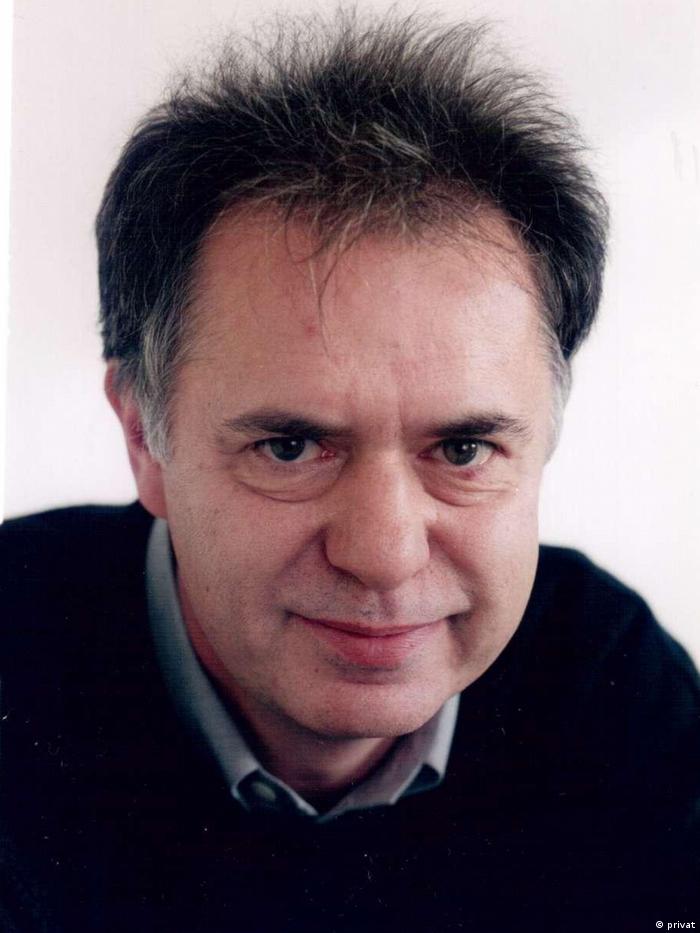
Fassbinder celebrated his international breakthrough at the Cannes Film Festival in 1974 with Ali: Fear Eats the Soul, which won different awards there. Töteberg notes that the German's films also received early praise in the US, and it's only following Fassbinder's international success that people in his home country became aware of his artistic genius. Still today, "the image of Germany abroad is clearly shaped by Fassbinder," says the author.
But did Fassbinder's tumultuous lifestyle and drug abuse and his reputation of having an extreme temper on film sets and of insulting friends damage his image as an artist? There is certainly something to it, says Töteberg, who, however, finds that "the cliché of the ingenious monster" isn't particularly helpful to better understand the Fassbinder phenomenon.
A unique perspective on Germany
Fassbinder was way ahead of his time on many issues. Töteberg cites sexuality as an example: "At the time he directed In a Year of 13 Moons (1978), who had actually heard of transsexuals outside of fringe groups?"

Fassbinder's cinematic take on politics, history and current events was also singular. He could not be defined as part of a specific camp, says Töteberg: "He never did propaganda, whether for left-wing or other politics; he always kept a distanced and critical position to the social movements of his time." In this respect, he didn't have any illusions and wasn't naïve about what was happening in Germany at the end of the 1960s-1970s.
Fassbinder never wanted to live up to expectations: "Whenever he had a commercial success, then the next film he made was a rather disturbing one," says Töteberg. "And when people thought: 'Oh, he's really become an arthouse director now,' then he'd do something for the mainstream. That was his way of being consistent!"
A director to discover and rediscover
Today, 75 years after his birth, there is still a lot about Fassbinder to be discovered. Some of his films disappeared for a long time, in some cases for legal reasons. Some of them have only recently been rediscovered and restored.
Despite his tremendous creative output, the director didn't consider himself a genius at all: "Fassbinder always said: 'I make things out of things. I'm not that productive myself.'" But, Töteberg adds, "the way he seized these things so productively, that's what is fascinating about him."
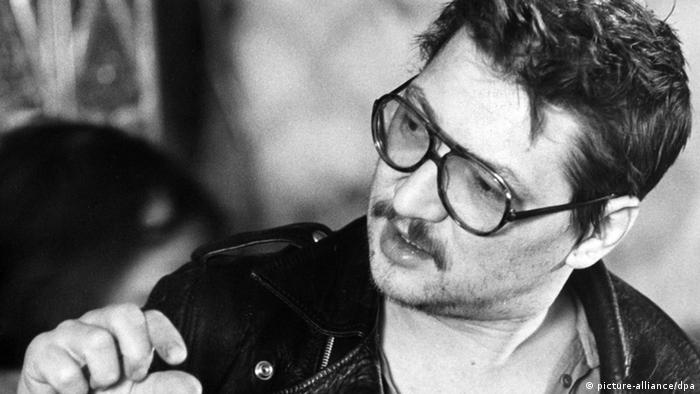
Early death of a cinema great
Fassbinder is one of the most important film directors of Germany's post-WWII era. He died in 1982 at age 37, yet in his short life span he made 44 movies. While influenced by his predecessors, his films were unique, earning him a place in international cinematic history and influencing a subsequent generation of directors around the world.
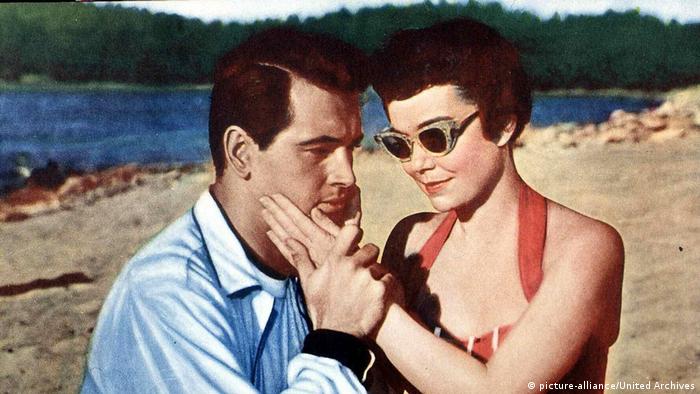
Inspired by Douglas Sirk
Fassbinder's most important role model was director Detlef Sierck, who was born in Germany in 1897. In 1937 Sierck released "To New Shores" and "La Habanera," featuring star actress Zarah Leander. He was forced to flee Nazi Germany the same year, as his wife was Jewish. After settling in Hollywood, he took on the name Douglas Sirk and made melodramas such as "Magnificent Obsession" (photo, 1954).

Douglas Sirk: The master of the melodrama
In the winter of 1970-71, Fassbinder visited his role model in Ascona, southern Switzerland, where Sirk was living at the time. Fassbinder once said in an interview that Sirk's melodramas, such as "All that Heaven Allows" (1955), made him believe that Sirk loved people and never caricatured them. Fassbinder also once said Sirk made films "that were just as I would have made them myself."
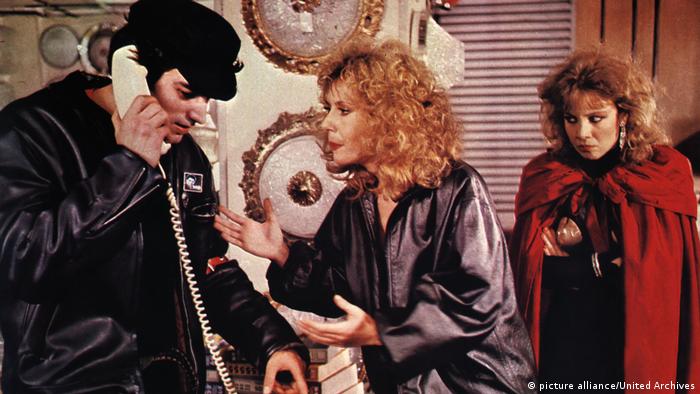
Following in Fassbinder's footsteps: Pedro Almodovar
Just as Fassbinder incorporated elements from Sirk's work into his own, European directors, such as Pedro Almodovar, later drew on Fassbinder's style. The Spaniard discovered Fassbinder's films as a young adult in Madrid and was fascinated by them, particularly by how the characters the actors defied typecasting. Above, a scene from Almodovar's "Labyrinth of Passion" (1982).
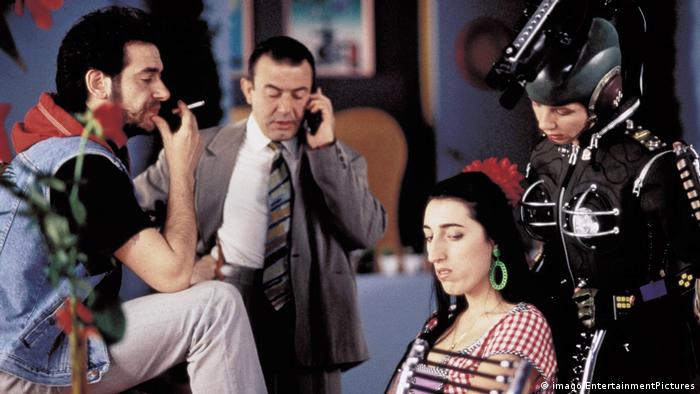
Almodovar: A mess of emotions
Almodovar's early films particularly recall Fassbinder's. Strong and hyperactive women, men trapped between masculine expectations and hidden sensitivity — this can be found in both directors' work. Homosexuality and tension between the sexes are also reoccurring themes. They are often portrayed in an exaggerated and loud manner, but also always with humanity. Shown above: "Kika," from 1993.
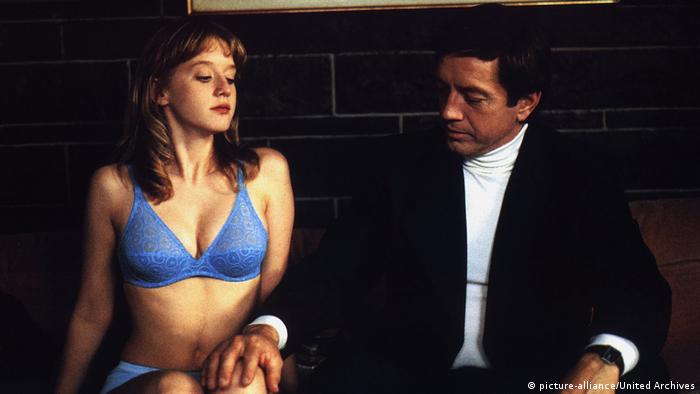
Feelings in full bloom: Francois Ozon
Fassbinder's biggest fan in the French-speaking world was Francois Ozon. Particularly the French director's early work contained visual and thematic parallels. Works such as "Sitcom" (1998) and "Water Drops on Burning Rocks" (2000; above), which is based on a play by Fassbinder, recalled the German director's films through its use of aesthetics and character selection.
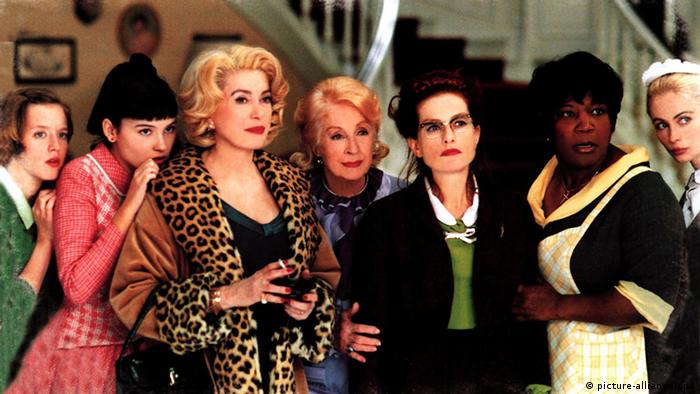
More strong women with Ozon
Ozon's 2002 film, "8 Women," also took inspiration from Fassbinder in its female protagonists; they are strong, energetic women who make diva-like appearances and display capricious behavior. All the characters are different, but one thing unites them: pure emotion, sometimes showed openly and other times hidden behind mask-like demeanor.
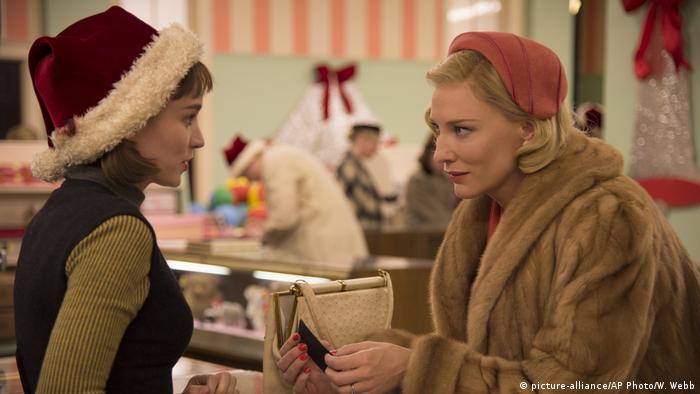
Fassbinder's Hollywood trail: Todd Haynes
In the US, film students quickly became familiar with Fassbinder's work, thanks to its early presence in arthouse cinemas. When looking for traces of his influence, director Todd Haynes stands out. He is yet another a fan of the German director, and his female characters often recall Fassbinder's. Above, a scene from the melodrama "Carol" (2015), starring Rooney Mara (l) and Cate Blanchett (r).
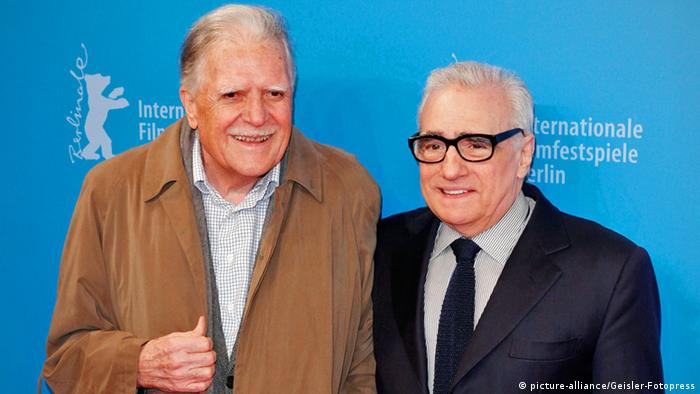
An indirect influence: Michael Ballhaus and Martin Scorsese
The cameraman Michael Ballhaus (left) worked for Fassbinder for years and became renowned for his innovative cinematography. Then he went to the United States and became Martin Scorsese's director of photography. And so in a way, Fassbinder is also present in some Scorsese films.
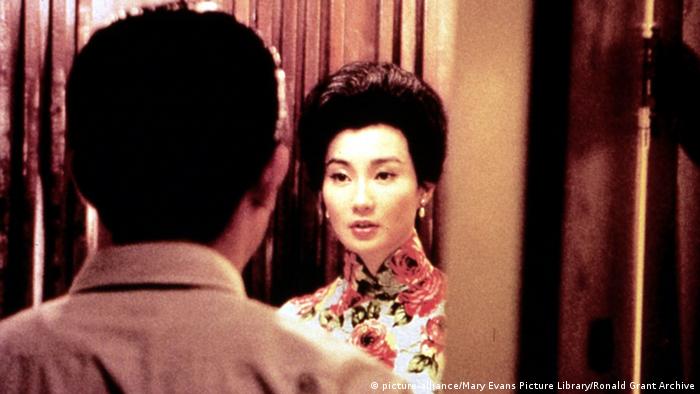
An imprint in Asia: Wong Kar-wai
In Asia, it is the Shanghai-born director Wong Kar-wai whose work most resembles Fassbinder's. Known for his beautiful shots (above, "In the Mood for Love," 2000), Wong once said that he most admired how Fassbinder directed his female actors: "They are strong women, and he constantly wrapped them in melodramatic events. "

Fassbinder fan Bong Joon-ho
Bong Joon-ho, the Korean filmmaker best known for his Golden Palm and Oscar-winning film "Parasite," told German newspaper "SZ" that he too was an admirer of the German director. "Lack, lust and greed influence people and families," he said, adding that Fassbinder had mastered the art of portraying these human traits.
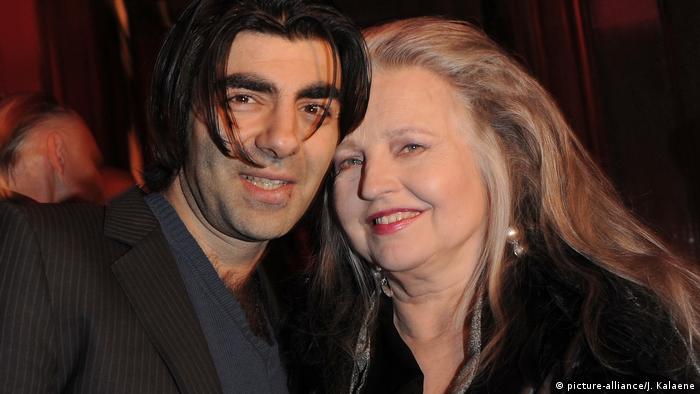
Back to Germany: Fatih Akin
And in Fassbinder's home country directors were also influenced by his work. For example, Fatih Akin cast Hannah Schygulla in the lead role of his film "The Edge of Heaven" (2007); the actress had starred in several Fassbinder films. At the film's premiere, she said that Akin "reminded me of the young Fassbinder" and that she had been impressed by "this wildness, this naivete."

Akin's magnetic field of emotions
Powerful, full of wild emotions: Fassbinder and Akin's films have much in common. They also share certain themes. Akin, who was born in Hamburg to Turkish parents, often places cultural conflict at the center of his films, such as in "In the Fade" (2017, picture). Fassbinder's 1974 movie "Ali: Fear Eats the Soul" was one of the first films to address cultural tensions.
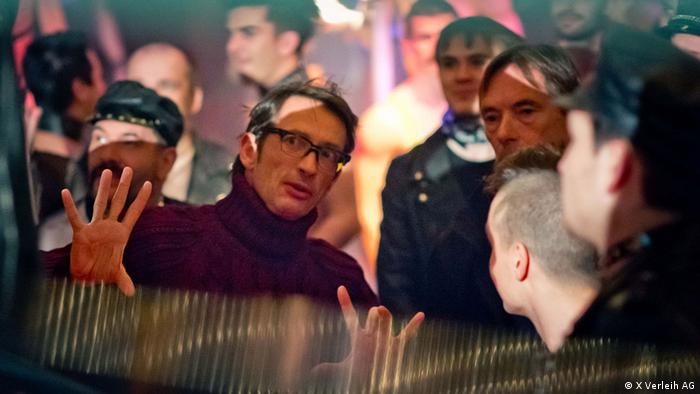
Fassbinder's double: Oskar Roehler
However, many experts consider a different German director to most reflect Fassbinder: Oskar Roehler. His films bubble over with emotion, sometimes even to an extreme. Characters and dramatic arcs are sometimes overexaggerated or affected. And yet the films present emotional universes that span Germany, as was also the case in Fassbinder's work.
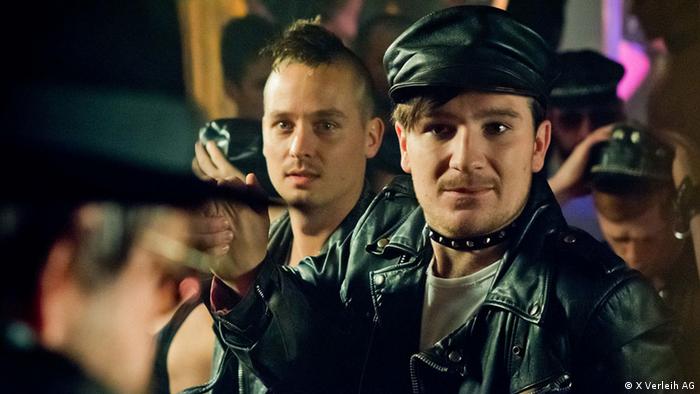
Men in leather: 'Punk Berlin 1982'
Fassbinder's favorite accessory was the leather jacket. But that's not the young director above; it's the actor Frederick Lau in Roehler's film "Punk Berlin 1982" (2015). The characters in Roehler's films can be imagined as part of Fassbinder's subcultural scene. The movie exudes raw artistry and Fassbinder-esque charm.
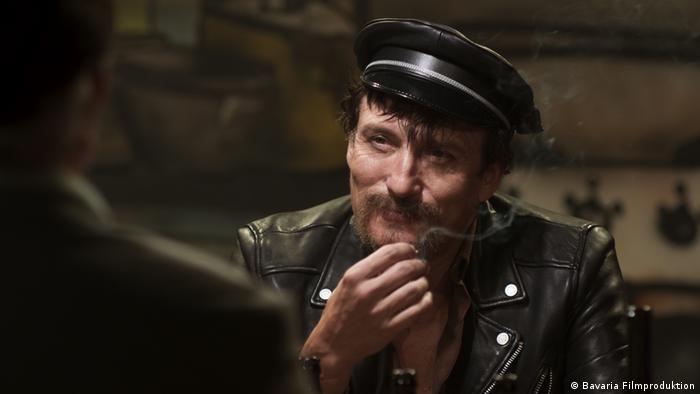
Fassbinder portrayed in 'Enfant Terrible'
It's no coincidence that Oskar Roehler has made a film based on episodes from Fassbinder's life, which will be released in Germany on May 28. The film, "Enfant Terrible," stars Oliver Masucci as the German director and focuses on Fassbinder's early years.
Author: Jochen Kürten (cmb)
Revisiting Rainer Werner Fassbinder, the cult director of New German Cinema
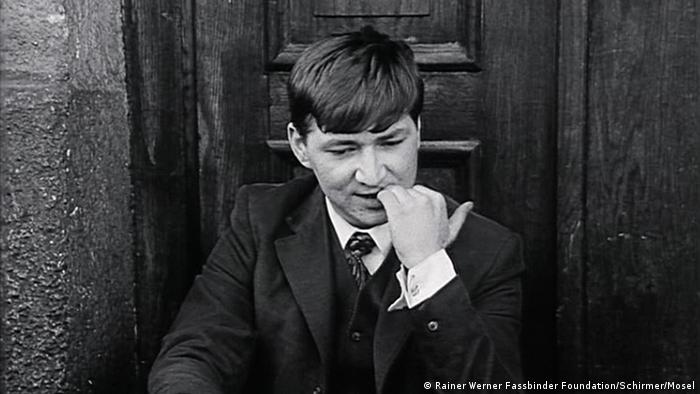
Fassbinder's first feature film, "Love Is Colder Than Death," came out in 1968, but his directorial debut was exactly 50 years ago. "This Night" (1966) is considered lost. The filmmaker went on to direct two other short films, "The City Tramp" and "The Little Chaos." The latter stars Fassbinder himself, in the role of a crook selling magazines.

Fassbinder's creativity exploded in 1969. In an essay of picture book "R.W. Fassbinder. Die Filme 1966 - 1982," the editor writes about "Love Is Colder Than Death," saying, "The mysterious and dark beauty of the title of this film encloses the general theme of all of Fassbinder's following films: the relentless exploration of all forms of love among people in a materialistic, ever-changing world."
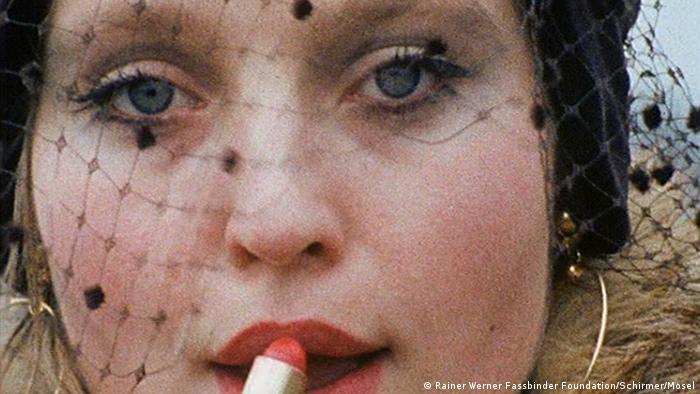
He was the creator of an exciting chapter of West Germany's cultural history. Within a few years until his early death in 1982, Fassbinder directed an incredible number of feature films and TV movies: 44 altogether. The filmmaker surrounded himself with regular contributors. Some of them would pursue major careers after his death, such as Hanna Schygulla, here in "Rio das Mortes" (1970).
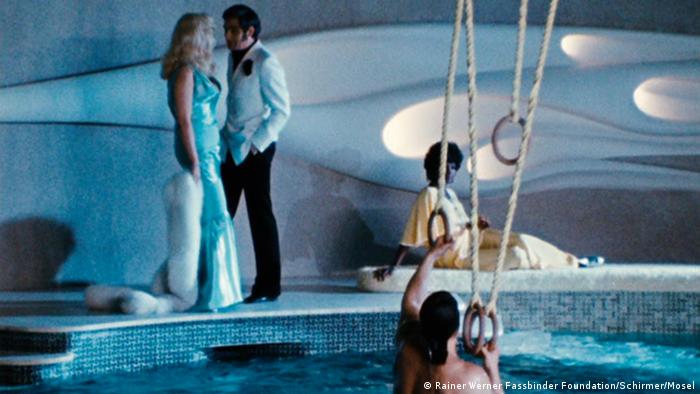
Though he is most famous as a film director, Fassbinder also created innovative TV series. In 1973, he directed the two-part science-fiction film "World on a Wire," which explores a world of virtual realities. The picture book "R.W. Fassbinder: Die Filme 1966-1982" documents the director's works in no less than 1,414 photos, featuring some of his works' very original sets.
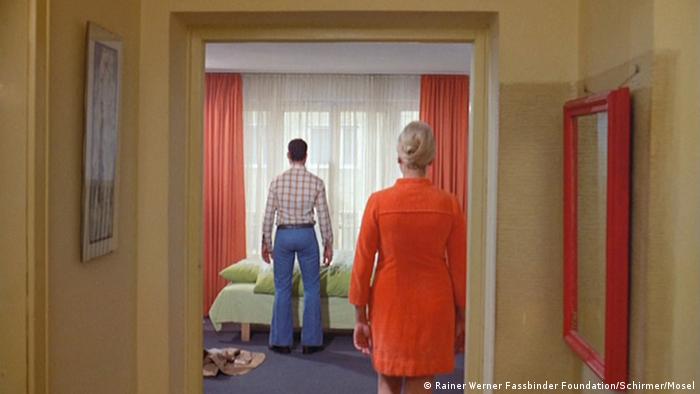
All while creating innovative works, Fassbinder's films almost always had a melodramatic core. This is particularly the case in "Ali: Fear Eats the Soul" (1973), which tells the story of a relationship between a 60-year-old widow and a much younger Moroccan in Germany. The issues explored by the film are still relevant to this day.

One of Fassbinder's most famous scenes is the 360-degree tracking shot by cameraman Michael Ballhaus in the drama "Martha" (1973). In typical Fassbinder fashion, this film tells a morbid and sadistic love story affected by jealousy and painful dependence. Ballhaus would later become a big name in Hollywood. Margit Carstensen and Karl-Heinz Böhm, two Fassbinder icons, star in "Martha."
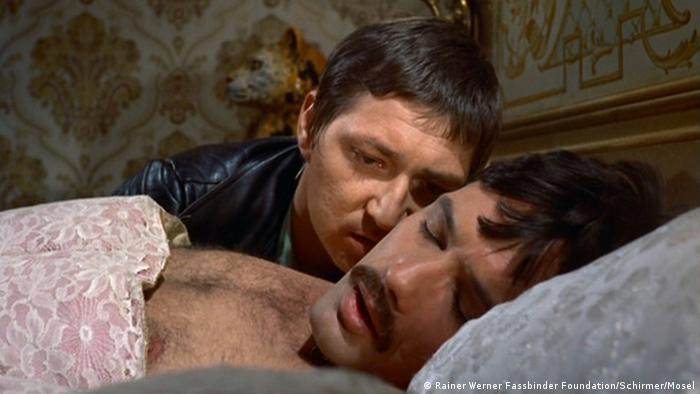
Fassbinder was a director who was fully dedicated to cinema. He would uninhibitedly reveal his own fears on the silver screen, often acting in his own movies, such as in "Fox and His Friends." Through his extremely subjective and intimate approach, he also exposed many aspects of German society.
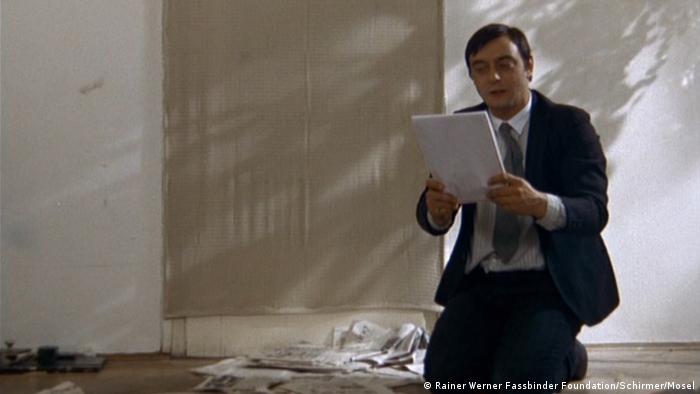
One of the editors of the picture book, Juliane Lorenz, is the head of an organization that manages the works of this exceptional director, the Rainer Werner Fassbinder Foundation. She was the editor of many of his films. Film stills make up most of the pictures, such as this one from "Satan's Brew" with Kurt Raab.
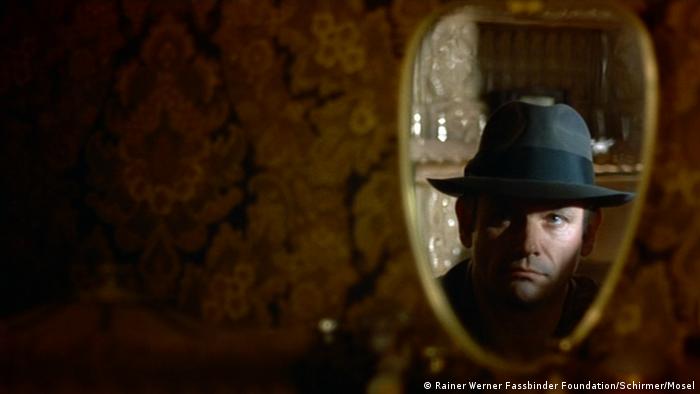
By the end of the 70s, Fassbinder's films were popular among a wider audience. Works such as "The Marriage of Maria Braun" (pictured, with Klaus Löwitsch), "Lili Marleen" or "Lola" featured prominent stars and achieved international recognition, all while exploring German history.
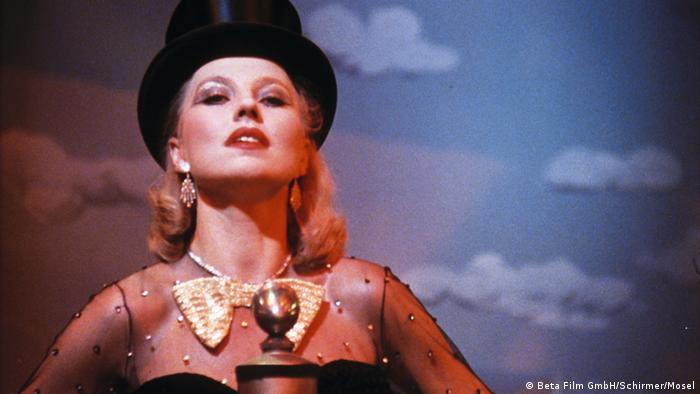
"Our book aims to transmit the visual essence of Rainer Werner Fassbinder's 44 films in print," writes editor Lothar Schirmer in the preface of "R.W. Fassbinder. Die Filme 1966 - 1982." Through numerous film stills, such as Hanna Schygulla in "Lili Marleen" pictured here, it is now possible to catch a glimpse of all the works of this outstanding movie director.
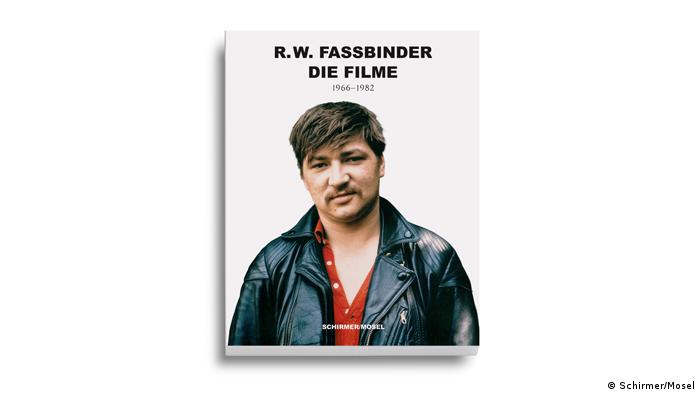
The book "R.W. Fassbinder. Die Filme 1966 - 1982" contains over 1,400 photos and film stills from all of the 44 works Fassbinder created within 17 years, offering a unique encyclopedic coverage of his creative universe. It is accompanied by short essays by Laurence Kardish, Juliane Lorenz and Lothar Schirmer, as well as by Fassbinder himself.
10 Bavarian filmmakers

Werner Herzog, born in 1942 in Munich, is currently the world's most famous Bavarian filmmaker. Ever since "My Best Fiend," his 1999 documentary about his favorite actor Klaus Kinski, Herzog has mostly directed in the US, combining fiction and documentary films, and charming the world with his unmistakable Bavarian accent. In Hollywood he has worked with stars such as Nicole Kidman.

With Herzog, Fassbinder was a catalyst of the New German Cinema movement that put the country back on the cinematographic map in the 1960s. Born in 1945 in the Bavarian town of Bad Wörishofen, he experimented and broke the conventions of the time like no other filmmaker in the country. Later, Fassbinder also filmed outside of Bavaria.
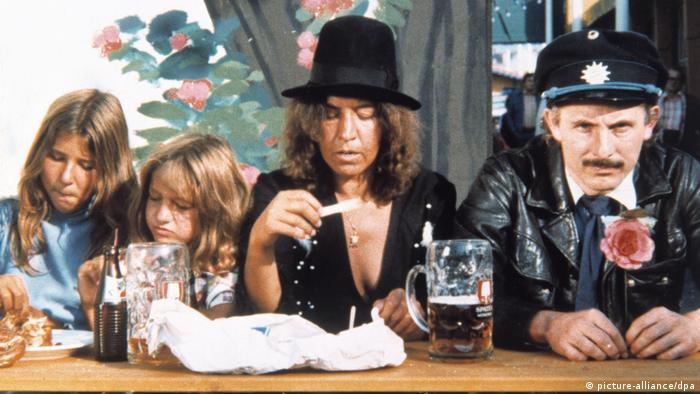
Herbert Achternbusch was and remains a Bavarian original. The director also often stared in his own films. In "Bierkampf" (above), which translates as "beer fight," he celebrated his love-hate relationship with his Bavarian homeland and its people. In the movie he played Herbert, who pretends to be a police officer (above right). Achternbusch is also the author of books, plays and radio dramas.

Karl Valentin was another Bavarian original. The singer, actor and author directed numerous short films in the early ages of cinema, as well as a few longer works later on. Born in 1882 in Munich, Valentin was renowned way beyond Bavaria for his duo performances with his stage and film partner, Liesl Karlstadt. His humor influenced generations of comedians after him.
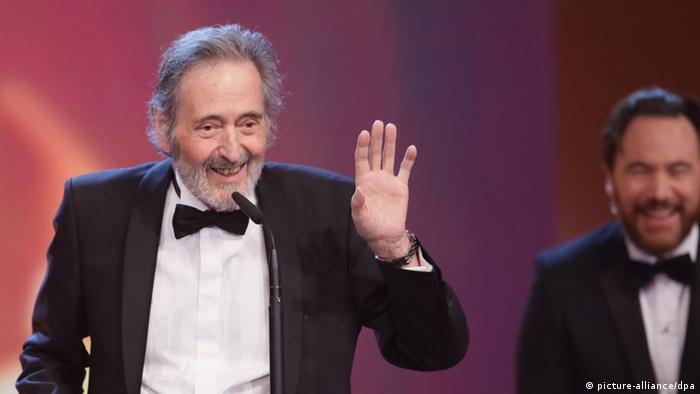
Traces of Karl Valentin's humor can be found in the TV shows and films directed by Helmut Dietl. Born in 1944 in the Bavarian town Bad Wiessee, Dietl's first hit TV series came with "Monaco Franze," followed by "Kir Royal." His most successful film was a 1997 comedy with a title that translates as "Rossini, or the Killer Question: Who Slept with Whom." It poked fun at Munich's vain high society.
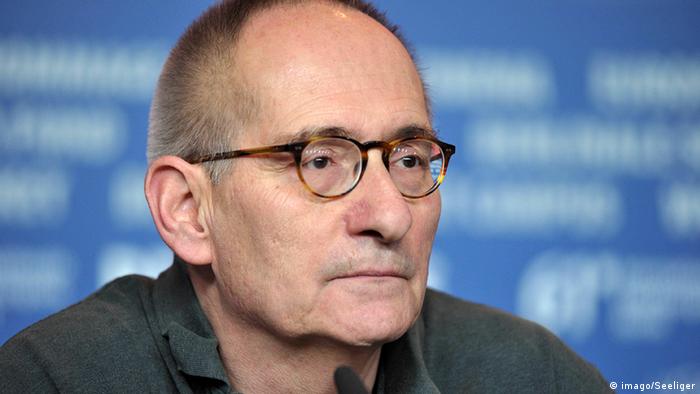
Born in Munich in 1952, Dominik Graf should be considered one of the greatest filmmakers of the country. However, his works weren't commercial hits, and he has mainly concentrated on directing for TV. His movies nevertheless belong to the best ever produced in this country. He also paid tribute to his home city with his film essay from the year 2000, titled "Munich — Secrets of a City."
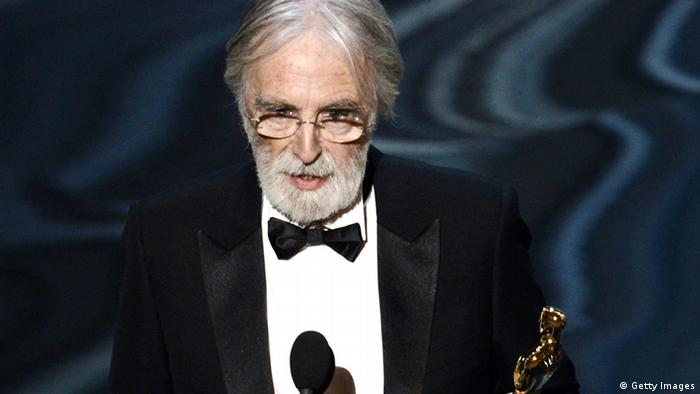
In Haneke's case, even though he started working for TV, he ended up as an internationally recognized filmmaker. As fans know, he's official holds Austrian nationality, but he was actually born in Munich. The glory of the award-winning director's oeuvre therefore also shines a bit on the city where he was born.
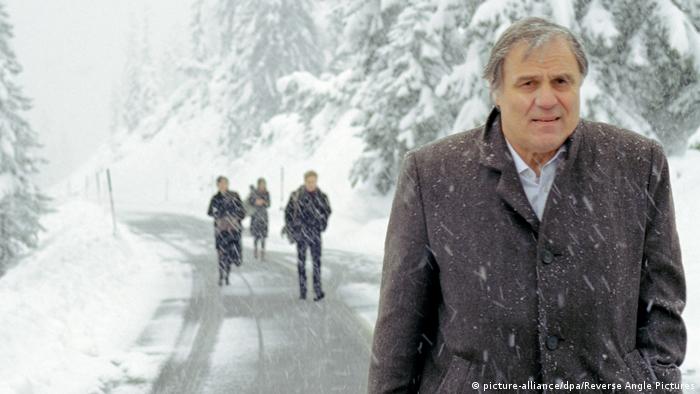
Josef Bierbichler is another Bavarian film director, though he only recently stepped behind the camera. He first established himself as an actor, shown here in Ina Weisse's film "The Architect." Bierbichler, born in 1948 in Amach, had his debut in films directed by other Bavarian greats Werner Herzog and Herbert Achternbusch. He's also a successful theater actor and novelist.
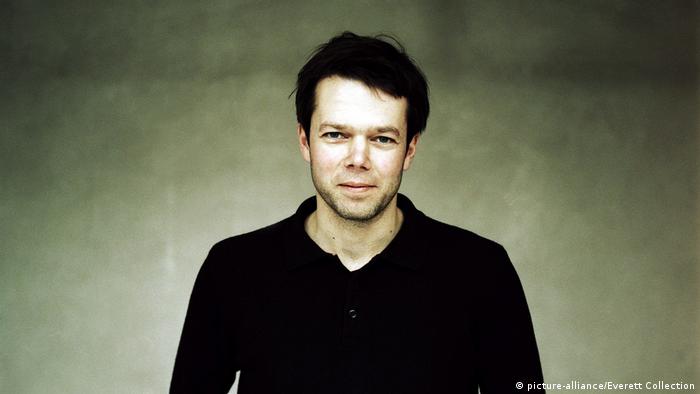
Director Hans-Christian Schmid is perhaps a discrete figure in Germany's cinematographic landscape, but nevertheless currently one of the most skilled filmmakers in the country. Born in 1965, he gained renown through his 1995 comedy, "After Five in the Forest Primeval," starring Franka Potente in her film debut. His works are not all set in Bavaria, but when they are, they're powerfully strong.
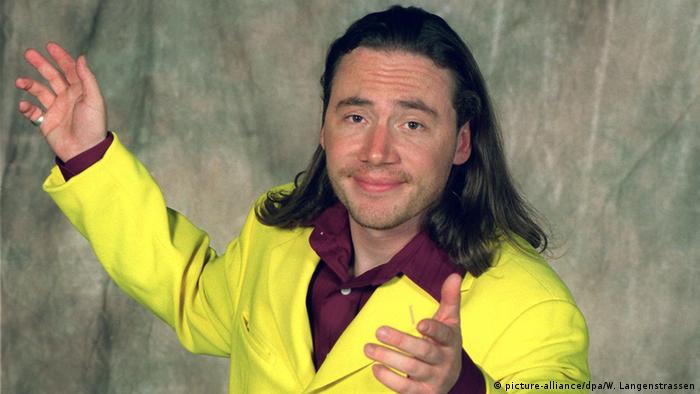
The youngest Bavarian filmmaker in our top 10 selection is comedian Michael "Bully" Herbig. Born in 1968 in Munich, Herbig initially became famous through his comedy skits and a TV late night sketch show, "Bullyparade." He went on directing for the big screen with parodies including "Manitou's Shoe," a smash-hit Western spoof, and "Traumschiff Surprise — Periode 1," which pokes fun at Star Trek.